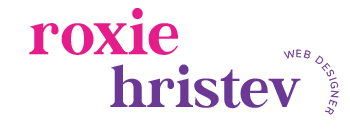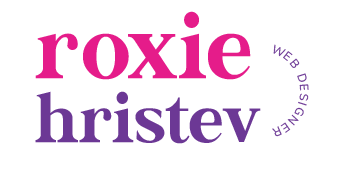In the world of entrepreneurship and online business, personal brand buzzwords are everywhere. These catchy phrases pop up in articles, social media posts, and marketing materials, often leaving new business owners feeling overwhelmed or confused. But what do they really mean, and how can you use them effectively?
In this guide, we’ll dive in and talk about personal brand buzzwords, breaking them down into practical, actionable advice. Whether you’re just starting out or looking to refresh your brand, understanding these terms can help you navigate the sometimes confusing world of personal branding. Let’s cut through the jargon and get to the heart of what these buzzwords mean for your business.
What’s a personal brand?
Before we jump into the buzzwords, let’s talk about what a personal brand actually is. Your personal brand is the unique combination of skills, experiences, and personality that you want the world to see. It’s the story you tell about yourself and your business, and how you present yourself to your audience. Think of it as your professional reputation, carefully crafted to reflect your values and attract your ideal clients.
A strong personal brand sets you apart from the competition, builds trust with your audience, and creates opportunities for your business. It’s not just about having a pretty logo or a catchy tagline – it’s about consistently communicating your value and building meaningful connections with your audience. Now, let’s see some of the buzzwords you might encounter as you develop your personal brand.
Authentic
This is probably the personal brand buzzword you hear most often. But what does it really mean? Being authentic isn’t about sharing every detail of your life online. It’s about being true to who you are in your business. When designing a website or writing content, it’s important to let your personality shine through. That’s authenticity in action!
Thought leader
Another personal brand buzzword that gets thrown around a lot. Here’s the deal: you don’t become a thought leader by calling yourself one. You earn it by consistently sharing valuable insights in your field. So focus on creating great content and helping your audience. The title will follow naturally.
Influencer
Don’t let this personal brand buzzword intimidate you! Being an influencer isn’t just about having a million followers. It’s about having an engaged audience who values your opinion. Even if you’re just starting out, you can be an influencer in your niche by providing genuine value to your followers.
Personal brand statement
This personal brand buzzword is actually pretty important. It’s a short statement that sums up who you are and what you do. When I help clients with their websites, we always work on crafting a clear, jargon-free brand statement. Keep it simple and focused on how you help your clients. For example, a life coach might say: “I help busy professionals find balance and purpose in their careers and personal lives.”
Elevator pitch
Think of this as your personal brand statement’s chatty cousin. It’s a quick introduction you could give during an elevator ride. The key is to make it sound natural, not rehearsed. Practice it, but don’t stress about making it perfect. For instance: “I’m a social media strategist who helps small businesses boost their online presence and engage with their audience in meaningful ways.”
Niche
Finding your niche is crucial, but don’t let this personal brand buzzword box you in. Your niche should be specific enough to set you apart, but broad enough to give you room to grow. For example, I specialize in helping women entrepreneurs, but I work with various industries within that group. For example, instead of just being a “fitness coach,” you might specialize in “postnatal fitness for new moms.”
Personal brand image
This personal brand buzzword covers everything visual about your brand – your logo, website design, social media graphics, you name it. Consistency is key here, but remember, your brand can evolve as your business grows. A good example is using the same color palette and font across all your materials. This helps create a cohesive brand image.
Digital footprint
This personal brand buzzword refers to your online presence. Be mindful of what you post, but don’t let fear hold you back from engaging online. Your digital footprint is a powerful tool for connecting with your audience. This includes everything from your social media posts to your blog comments and online reviews.
Value proposition
Fancy personal brand buzzword for a simple concept: what makes you unique? When I’m writing content for clients, we always focus on clearly communicating their unique strengths and how they benefit their customers. For example, a virtual assistant might say: “I bring 10 years of corporate experience to help solopreneurs streamline their operations and focus on growth.”
Brand storytelling
Everyone loves a good story! This personal brand buzzword is about sharing your journey in a way that resonates with your audience. Be genuine and focus on the parts of your story that your ideal clients will connect with. For instance, if you’re a financial advisor who overcame debt, sharing that journey can inspire trust in clients facing similar challenges.
Brand ambassadorship
This term describes the act of representing and promoting a company or product. In personal branding, it can refer to aligning yourself with causes or organizations that reflect your values. Be selective about what you choose to represent, as it will be associated with your personal brand.
Personal brand audit
The process of assessing and evaluating your current personal brand. While it’s important to periodically review your brand, avoid becoming overly fixated on metrics. Focus on whether your brand accurately represents your current professional identity and goals.
Brand consistency
Maintaining a cohesive image across all platforms and interactions. While consistency is important, it shouldn’t come at the expense of authenticity or growth. Allow your brand to evolve naturally as you develop professionally.
Brand voice
Your brand voice is the personality and emotion infused into your brand’s communications. It should be consistent across all platforms and reflect your brand’s values. Are you playful and casual, or more formal and authoritative? For example, a children’s book author might use a whimsical and energetic brand voice, while a corporate consultant might adopt a more professional and straightforward tone.
Personal brand archetype
This buzzword refers to the character or persona your brand embodies. There are typically 12 main archetypes, such as the Hero, the Caregiver, or the Rebel. Identifying your brand archetype can help guide your messaging and attract your ideal audience. For instance, a leadership coach might embody the Sage archetype, focusing on wisdom and guidance.
Personal brand ecosystem
This buzzword describes the network of platforms and touchpoints where your brand interacts with its audience. It includes your website, social media profiles, email newsletter, and any other channels you use. The key is to ensure a consistent experience across all these touchpoints. For instance, a yoga instructor might have a website, Instagram account, YouTube channel, and in-person classes, all working together to provide value to their audience.
Remember, these personal brand buzzwords are tools, not rules. Use them to guide your branding efforts, but don’t get so caught up in the jargon that you lose sight of what really matters: connecting with your audience and providing value.
I hope this guide has helped demystify some of these personal brand buzzwords for you.
Roxie




